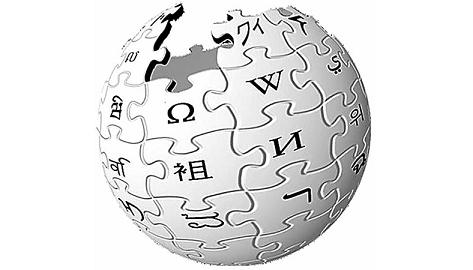Russia Threatens Wikipedia With Fines Over ‘False Information’

Despite global outrage at evidence of Russian war crimes in Bucha, Wikipedia is warned to remove ‘false’ information about Ukraine invasion
Russia continues to display its tone deaf attitude to the world, after that country’s communication regulator threatened the community-written encyclopaedia Wikipedia.
Reuters reported that Roskomnadzor on Tuesday warned Wikipedia to remove “material with inaccurate information of public interest” about the situation in Ukraine.
It comes amid global outrage at the growing evidence of Russian war crimes in Bucha and other parts of Ukraine.
![]()
Roskomnadzor warning
In Bucha, Ukraine investigators have discovered the bodies of at 410 civilians, some of whom were gunned down in the street, with their hands still tied behind their backs and displaying signs of torture.
Other bodies have been found in mass graves.
And there are multiple reports of Ukrainian women being raped by the Russian military.
Moscow has categorically denied the allegations its troops have been executing Ukrainian citizens, despite all the evidence to the contrary.
But the discovery of mass killings of civilians in Bucha led US President Joe Biden to once again label Russian President Vladimir Putin a war criminal.
Amidst this, Russia’s Roskomnadzor accused Wikipedia of hosting false information on what Russia calls its “special operation” in Ukraine and on the actions of Russia’s military too.
According to Russian law, the owner of an Internet resource that does not delete illegal information when asked to do so by Roskomnadzor can be fined up to 4 million roubles ($48,120.30), the regulator said.
Censorship laws
Last month Roskomnadzor was hacked by the hacktivist collective Anonymous, as it continued its self-declared war against Russia.
Anonymous has previously hacked Russian state TV channels to show war footage of the invasion of Ukraine to oblivious Russian citizens.
Roskomnadzor it should be remembered is responsible for enforcing Russia’s new censorship laws.
The agency introduced a number of censorship measures, including a bill that President Vladimir Putin recently signed into law, which prohibits the publication of “knowingly false information” about the Russian military and its operations.
That law made it impossible for news organisations to accurately report the news in or from Russia.
The Russian ‘fake news’ law forced the likes of BBC and CNN to stop broadcasting from the country.
Sentences for offenders can include up to 15 years in prison.